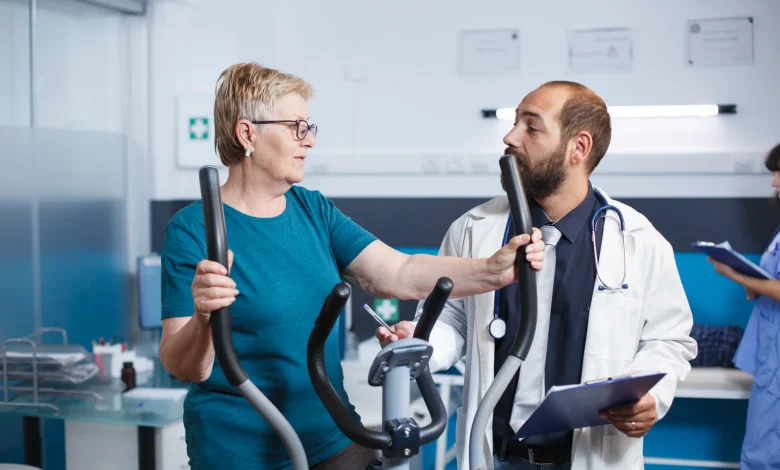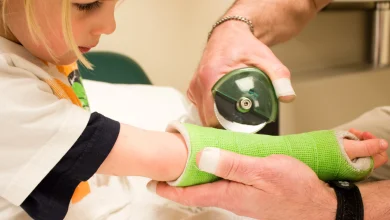Resources for Seniors Seeking Orthopedic Help

As people age, their bodies often present new challenges, particularly regarding musculoskeletal health. Orthopedic issues such as arthritis, hip and knee replacements, or osteoporosis can significantly impact the quality of a senior’s life. Fortunately, there are various resources available to help elderly individuals navigate the complexities of orthopedic care. By understanding these needs, exploring coverage options, connecting with support groups, engaging in rehabilitation, and finding the right medical professionals, seniors can address their orthopedic concerns effectively. In this article, we’ll delve into these critical areas to ensure better orthopedic care for the elderly.
Understanding Orthopedic Needs in Senior Citizens
As people age, joint pain, stiffness, and limited mobility often become more common, making orthopedic care essential for maintaining comfort and independence. Preventive steps like calcium and vitamin D supplementation, regular check-ups, and awareness of risk factors such as past injuries or family history can help delay or reduce orthopedic problems. Reliable senior transportation services also ensure older adults can attend these crucial medical appointments and stay proactive about their joint health.
When orthopedic issues arise, early and personalized treatment is key. Options may include medication, surgery, or lifestyle changes tailored to each person’s needs. Experienced NJ Orthopedic Surgeons can design care plans that promote mobility and safety, helping seniors stay active while managing conditions like osteoarthritis or recovery from falls.
Navigating Medicare and Insurance for Orthopedic Care
Navigating Medicare and private insurance can be complex for seniors seeking orthopedic care, as coverage for specialist visits, surgeries, and therapies varies by plan. Medicare Part B typically covers medically necessary orthopedic visits but may involve deductibles and coinsurance. Seniors enrolled in Medicare Advantage Plans often encounter different benefits and out-of-pocket costs, making it important to review plan details before scheduling treatments or procedures.
For added financial protection, many seniors choose Medigap policies to cover expenses that Medicare doesn’t, including copayments and deductibles. Staying organized with insurance documents, tracking policy updates, and maintaining open communication with providers or advisors can help prevent coverage gaps and ensure smooth access to orthopedic services.
Local and Online Support Groups for Seniors with Orthopedic Concerns
Orthopedic challenges often affect seniors emotionally as much as they do physically, making support groups a vital resource. These groups create safe spaces for older adults to share experiences, exchange coping strategies, and receive encouragement from others facing similar struggles. Local community centers frequently organize such gatherings, providing valuable face-to-face interaction that fosters a sense of belonging and reassurance during recovery or ongoing joint care.
Beyond in-person meetings, online communities and forums offer accessible support for seniors managing mobility limitations. These virtual spaces allow participants to discuss treatments, share practical tips for daily living, and motivate one another through rehabilitation. The shared understanding and emotional uplift can play a key role in maintaining morale and treatment adherence.
The Role of Physical Therapy and Rehabilitation in Senior Orthopedic Health
Physical therapy and rehabilitation play a vital role in helping seniors recover from orthopedic conditions by restoring mobility, building strength, and enhancing daily function. Through personalized treatment plans, licensed therapists design targeted exercises to relieve pain, increase flexibility, and strengthen muscles surrounding weakened joints. These programs are adapted to each patient’s unique health status and recovery goals for optimal results.
Beyond exercises, rehabilitation focuses on functional independence and safety. Seniors are taught correct movement techniques, proper use of assistive devices like canes or walkers, and home adjustments that reduce fall risks. Consistent participation and guided therapy ensure lasting improvements in mobility, confidence, and quality of life.
Evaluating Orthopedic Specialists and Surgeons for Elderly Patients
Choosing the right orthopedic care requires selecting specialists experienced in geriatric orthopedics who understand the unique needs of older adults. Seniors and caregivers should seek referrals from primary care physicians or trusted acquaintances and review the credentials and patient feedback of orthopedic surgeons to assess their expertise and success with similar cases. Clear communication and a compassionate approach are key indicators of quality care.
Accessibility also plays an important role, especially for seniors with mobility limitations. Exploring transportation services for seniors can help ensure consistent attendance at consultations and follow-ups. A supportive relationship built on trust and open communication between the patient and orthopedic provider can significantly enhance recovery and treatment satisfaction.
Altogether, the right combination of knowledge, support, professional guidance, and practical resources can greatly enhance the management of orthopedic issues for seniors. Ensuring that seniors have access to comprehensive orthopedic care is a vital aspect of helping them maintain their independence and quality of life in their later years.




